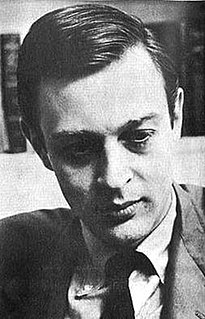Top 17 Dubois Quotes & Sayings
Explore popular Dubois quotes.
Last updated on October 15, 2024.
When you wrote it didn't matter if hysteria sometimes came up in your face and voice (unless, of course, you let it find its way into your "literary voice") because writing was done in merciful privacy and silence. Even if you were partly out of your mind it might turn out to be all right: you could try for control even harder than Blanche Dubois was said to have tried, and with luck you could still bring off a sense of order and sanity on the page for the reader. Reading, after all, was a thing done in privacy and silence too.
I kept finding the same anguish, the same doubt; a self-contempt that neither irony nor intellect seemed able to deflect. Even DuBois’s learning and Baldwin’s love and Langston’s humor eventually succumbed to its corrosive force, each man finally forced to doubt art’s redemptive power, each man finally forced to withdraw, one to Africa, one to Europe, one deeper into the bowels of Harlem, but all of them in the same weary flight, all of them exhausted, bitter men, the devil at their heels.
I think that in his 39 short years of life, Malcolm X came to symbolize Black urban America, its culture, its politics, its militancy, its outrage against structural racism and at the end of his life, a broad internationalist vision of emancipatory power far better than any other single individual that he shared with DuBois and Paul Robeson, a pan-Africanist internationalist perspective.
I didn't have any close relationship with him because, although [William Edward Burghardt] DuBois may not have been as egocentric - I don't know - he certainly was not the easiest person to approach. I think, certainly, those of us who were younger sort of respected that in terms of his preoccupation with deep thoughts. So, I made no effort to establish any relationship with him. However, he was in and out then.
'Streetcar' is no longer about the moment at all. There is no Blanche DuBois anywhere; south, north, east or west. We don't have Blanche DuBois at the moment. But we have Willy Loman; everywhere we look we see Willy Loman. We are Willy Loman. We're on Facebook; we need to be known; we're selling all the time.
There never has been a desire on the part of the government that the struggle of Black people in America should be linked to the struggle of our people in every part of the earth. Every leader that was international in scope and in reach became the target of the government - Paul Robeson, Marcus Garvey, W.E.B. DuBois, Martin Luther King Jr., Malcolm X, Kwame Ture and the Honorable Elijah Muhammad. Any Black leader who would try to connect us to our brothers and sisters in Africa and Asia were seen as a threat and became a target.













